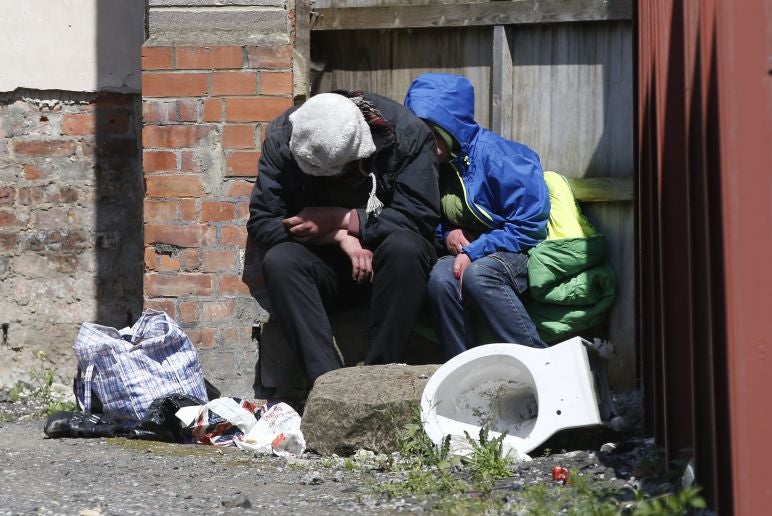Theresa May unveils £40 million fund to prevent homelessness in Britain
'I believe it's time we changed our approach. We can no longer focus on tackling the symptoms and immediate consequences of homelessness'

Your support helps us to tell the story
From reproductive rights to climate change to Big Tech, The Independent is on the ground when the story is developing. Whether it's investigating the financials of Elon Musk's pro-Trump PAC or producing our latest documentary, 'The A Word', which shines a light on the American women fighting for reproductive rights, we know how important it is to parse out the facts from the messaging.
At such a critical moment in US history, we need reporters on the ground. Your donation allows us to keep sending journalists to speak to both sides of the story.
The Independent is trusted by Americans across the entire political spectrum. And unlike many other quality news outlets, we choose not to lock Americans out of our reporting and analysis with paywalls. We believe quality journalism should be available to everyone, paid for by those who can afford it.
Your support makes all the difference.Theresa May has unveiled a £40 million package designed to prevent homelessness by intervening to help individuals and families before they end up on the streets.
The shift in government policy will move the focus away from dealing with the consequences of homelessness and place prevention "at the heart" of the Prime Minister's approach.
Earlier this year it was revealed that under David Cameron’s administration homelessness among English households had risen by 54 per cent since 2010. And according to a report, released by the Department for Communities and Local Government, there were 57,750 acceptances in financial year 2015-16 – a rise from 54,430 (6 per cent) from 2014-15.
This represented the sixth consecutive annual rise, with households becoming homeless in London increasing to 17,530 (9 per cent) in the last year alone and 58,000 households across the whole of England.
Writing in the Big Issue magazine - sold by homeless people – Mrs May said: "We know there is no single cause of homelessness and those at risk can often suffer from complex issues such as domestic abuse, addiction, mental health issues or redundancy.
"So I believe it's time we changed our approach. We can no longer focus on tackling the symptoms and immediate consequences of homelessness. We need to put prevention at the heart of a new approach.
"As a first step towards this change, I'm announcing a new £40 million package to both prevent and tackle the causes of homelessness. This will include £20 million for local authorities to pilot innovative initiatives to tackle the causes of homelessness - helping to find solutions for families and individuals before they reach crisis point."
Manchester, Newcastle and the London borough of Southwark are to be the first "homeless prevention trailblazer" areas in a £20 million programme trialling innovative approaches to the problem.
Local authorities will be able to bid for cash from a £10 million grant fund for early intervention to help rough sleepers before their problems become entrenched. And a further £10 million in Social Impact Bond funding will provide personalised support to address the complex needs of long-term rough sleepers and get them into accommodation.
Campaigners are also planning a mass lobby of Parliament on Wednesday to encourage MPs to back a Homelessness Reduction Bill tabled as a private members' bill by Conservative backbencher Bob Blackman.
Rick Henderson, chief executive of homeless link, said, at first glance the new initiative “looks promising”. He added: “It is vital that resources are assigned to preventing homelessness and relieving its root causes, reducing the need for fire-fighting once the damage has been done. A focus on ending street homelessness and addressing the complex needs of entrenched rough sleepers is also hugely welcome. But the detail is important here and we are keen to see how DCLG awards the funding, and monitors the impact of the money in how it contributes to preventing and ending homelessness.
“Ideally the Government will now back this programme up by supporting the Homelessness Reduction Bill, and developing a national homelessness strategy with a joined up approach, to ensure that the most vulnerable in society have the help they need to get their lives back on track.”
Join our commenting forum
Join thought-provoking conversations, follow other Independent readers and see their replies
Comments